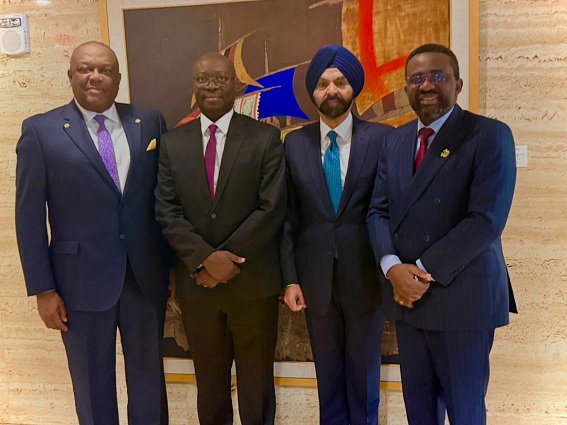Ghana’s Finance Minister, Dr. Cassiel Ato Forson, has held a high-level meeting with the President of the World Bank Group, Ajay Banga, to strengthen cooperation and unlock new opportunities in support of Ghana’s development agenda.
The meeting, which took place on the sidelines of the IMF–World Bank Annual Meetings, focused on expanding support for both ongoing World Bank–financed projects and new initiatives designed to accelerate Ghana’s economic transformation.
Dr. Forson and Mr. Banga agreed to prioritise five strategic sectors where enhanced World Bank assistance is expected to deliver maximum impact for the Ghanaian economy and its citizens. These are:
- Education
- Health
- Energy
- Roads
- Agriculture
According to Dr. Forson, these areas are critical pillars of Ghana’s medium- to long-term development ambitions and will form the foundation for the next phase of collaboration with the World Bank.
“With this renewed collaboration, we are working together to accelerate Ghana’s journey toward a more resilient, inclusive, and sustainable economy,” Dr. Forson said.
The discussions also centered on how to align the World Bank’s country programme with Ghana’s ongoing fiscal and structural reforms under the IMF-supported Extended Credit Facility (ECF). The partnership is expected to drive investments that promote job creation, infrastructure development, and human capital advancement.
Dr. Forson was accompanied at the meeting by the Governor of the Bank of Ghana, Dr. Johnson Asiama, and Ghana’s Ambassador to the United States, H.E. Victor Smith.
Both parties reaffirmed their commitment to deepening the long-standing relationship between Ghana and the World Bank, which has supported numerous initiatives in governance, financial inclusion, and poverty reduction over the past decades.
The meeting concluded with a shared pledge to ensure that future projects align with Ghana’s Reset Agenda, which prioritises inclusive growth, fiscal discipline, and sustainable development.





